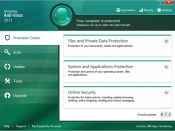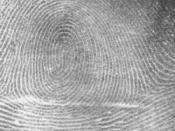Introduction
We all recognize ethical behaviour, however unfortunately not all of us follow this behaviour. Ethics begin with respect for our selves and for others. Basically, good ethics requires that a person exercise morals in their everyday living. This makes it unethical to send a computer virus to infect other computers or to hack into other people's private information. A virus attack would damage other people's information and also creates problems regarding privacy.
This essay will examine the ethical debate surrounding a number of new applications of computing. Technology has opened up an entire new set of ethical dilemmas in relation to the invasion of privacy, and respect for people's property.
I will endeavour to explore these contentious issues, in particular those relating to privacy infringement by using several examples, including a school library fingerprinting system. I will then further discuss the notions of 'computer viruses' and hacker ethics.
Hi-tech ...
or an invasion of privacy?
In March, 'The Sunday Mail' featured an article on a Queensland high school. The story was about the new computer system in the Bundamba Secondary College library. This school is the first one in Queensland to have a fingerprint recognition sensor. This computer system is unique because it replaces library cards, which means the students no longer require a library card. However, the Queensland Council for Civil Liberties president Ian Dearden is outraged about the new technology. He believes that it is an infringement on
privacy. He does not think that it is good for students to volunteer their fingerprints just so they can loan books from the library. Dearden states that people have to be charged with a serious offence before the police take their fingerprints, and so asks "why are school children giving their fingerprints to their school?" He then goes on...


